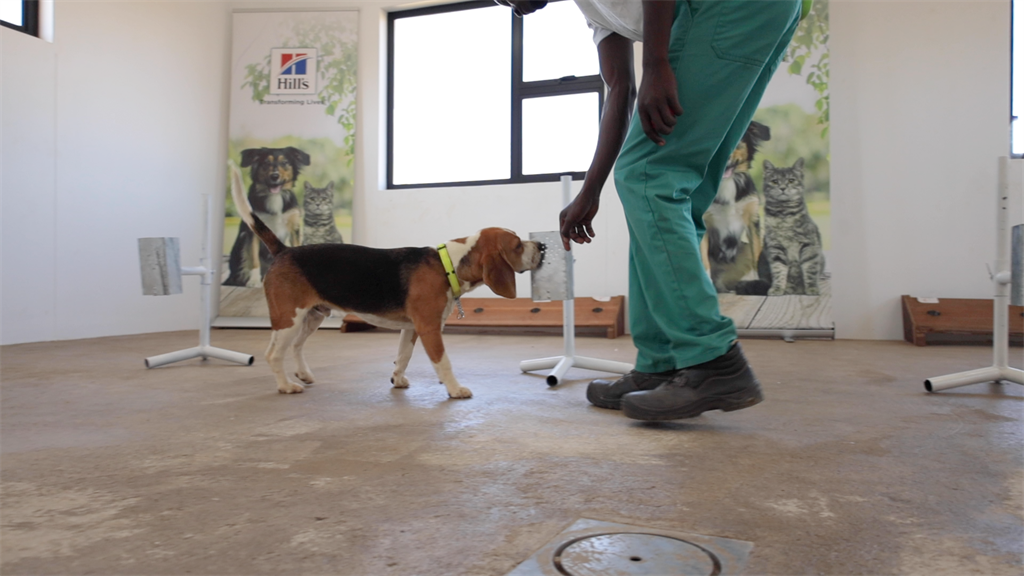- August 20, 2022
- No Comment
- 5 minutes read
A litter of puppies born in Namibia in 2020 have been trained to sniff out Covid-19 – News24

Saturday, 20 August
19 Aug
In 2020, during the height of the Covid-19 pandemic, a litter of puppies was born at the University of Namibia (UNAM) School of Veterinary Medicine (SoVM).
The coinciding events would prove fundamental to the start of the Namibia Detection Dog Project.
The beagle pups would become part of an elite Covid-19 detection unit.
Medical detection dogs are already trained to spot the scent of malaria, cancer, and Parkinson’s disease. But could dogs be used to sniff out Covid-19?
According to Dr Anna Marais, Associate Dean of the UNAM School of Veterinary Medicine, “dogs have 300 million smell receptors in their noses, while humans only have around 5 million. More active genes that code olfactory data make dogs’ sense of smell hundreds of times more powerful than that of humans. The anatomy of the dog skull also provides a lot of space for these molecules to attach to the smell receptors”.
Similar projects were already running in France, Finland, the UAE, and the UK – and now, the adorable litter of pups from the university’s existing colony would sniff their way to the launch of Africa’s first Covid-sniffing dog pilot project.
According to a statement released to the media, SoVM veterinarians identified an experienced dog trainer to work on the project. They enlisted the support of four volunteer dog handlers, including a veterinary nurse, a veterinary para-professional, a postgraduate student and a theatre assistant from the SoVM’s staff, to start with the obedience training of four dogs.
At the same time, the Dog Detection Trust was established, with Justice Dave Smuts, Dr Salomo Amadhila and Dr Conrad Brain as founding members. They aim to share information with international researchers and raise funds to build and equip a dedicated dog detection training unit.
Hill’s Pet Nutrition joined the project to look after the nutritional needs of all the dogs in the programme and donated over R100 000 to the project in Namibia.
“We are excited to be part of this revolutionary work, as well as helping to find an affordable and feasible way of detecting this virus and potentially others in the future,” Dr Guy Fyvie, Veterinary Advisor at Hill’s Pet Nutrition, said in a statement.
According to Dr Marais, the results from the pilot project Covid-19 sniffing results to date “are extremely promising and indicate a similar pattern as those emerging from collaborative projects abroad, with the SoVM dogs presently able to identify well over 80% of the samples correctly”.
“This indicates that dog detection of Covid-19 could potentially be an affordable and reproducible method in the detection of the virus and control thereof, especially in low-income countries with limited lab space.”
Covid-19 sniffing training continues when samples permit, while other dogs are trained to detect wildlife products, narcotics, and explosives.
Using an interim facility at the SoVM and a smooth sample collection procedure, the trainers and dogs moved from obedience training to smell detection.
A typical day starts with a bonding session between dogs and dog handlers and trainers, providing a chance to refresh aspects of basic obedience training, familiarisation with surroundings and specific dog/handler bonding, including the understanding of body language between the two.
After an intense period of sniffer training, the dogs are taken out to relax and socialise in the surrounding farmlands. Plus, the dogs are familiarised with different buildings, people, and situations they may encounter in their future training or deployment.
18 Aug
Down the Aisle – Weekly
From something new to something borrowed, all the wedding trends and fashion inspo you need for your upcoming nuptials, plus, a peek into real life weddings.
01 Aug
26 Jul
23 Jul
22 Jul
19 Aug
18 Aug
18 Aug
18 Aug

